How to Fit Holistic Nutrition in Daily Life
Holistic Nutrition acknowledges that many aspects of daily life contribute to our health and well-being. When we give equal attention to not only what we eat, but also how we eat, the quality of our thoughts and self-talk, our ability to set boundaries, time spent in nature, or the flow and pace of our day, it becomes suddenly clear what health is all about. Distributing our focus across these different aspects of daily life moves the intense, guilt-ridden spotlight away from perfecting our diet as the golden ticket to feeling good in and about our bodies.
But the idea of focusing on all aspects of holistic health each day can be overwhelming. Instead start by making just a few tweaks to how you move through your day. Below are two small ways I wrote about recently on Instagram to put holistic nutrition into practice in daily life.
GIVE UNCONDITIONAL PERMISSION TO EAT
PLAN MEANINGFUL ALONE TIME
In a month where buzzwords such as reset, detox, cleanse, deprive, restrict, and deny -- some explicitly spoken, some subtly implied -- swarm around us, I'm offering an out. An INSIDE out, to be exact.
Interpretation? When deciding what to eat, how to move, and what to think about your body, look to yourself for answers before consuming anything “out there”.
Tune into your energy, mood, cycle (if you’re a woman), aches and pains.
Take note of the weather, your emotional demands of the week, your activity level.
And get quiet so you can be attentive to your cravings, desires and what they represent.
THESE are the factors that should guide your decision. Decisions on where you need play foods or more nutritionally-dense options. Where you need a yoga session or HIIT workout or no movement at all. Not the “shoulds” and “should nots” of January.
This inside-out strategy is the essence of Intuitive Eating, a science-based approach rooted in values of variety, flexibility, attunement, joy, freedom, satisfaction and liberation in body and mind.
And it’s only from this state of mind – of giving yourself unconditional permission to eat, taking back your power from food, not being afraid of food – that you can shift out of a deprivation mindset and make food and lifestyle choices for the RIGHT reasons.
A well-researched value I weave into my coaching practice and personal life is carving out space for meaningful alone time or "quiet space". This is the 5-20 minutes we take in daily life to pause, slow down, and reconnect with ourselves.
For any of us who struggle with emotional or stress eating, digestive issues due to eating too fast or living too fast, or catastrophic all-or-nothing thinking, this pause - when practiced regularly - can help re-wire our brains to learn how to thoughtfully respond vs. impulsively react.
But be careful about what you allow to qualify as quiet space!
Yesterday a client made a very wise distinction. She works from home and can spend all day at home alone on the computer. She used to think this time counted. But when she began taking 10 minute meditation breaks or walks around the block she noticed how indulgent it felt (in the best way possible) and how much energy and clarity she received as a result!
And ironically enough, taking a yoga class with a room full of other people also qualifies as meaningful alone time for her.
What does meaningful alone time (or quiet space) look like for you? More importantly: are you able to prioritize it on a regular basis?













